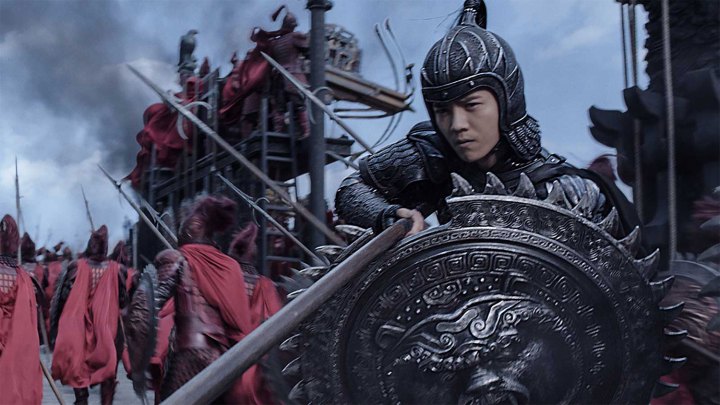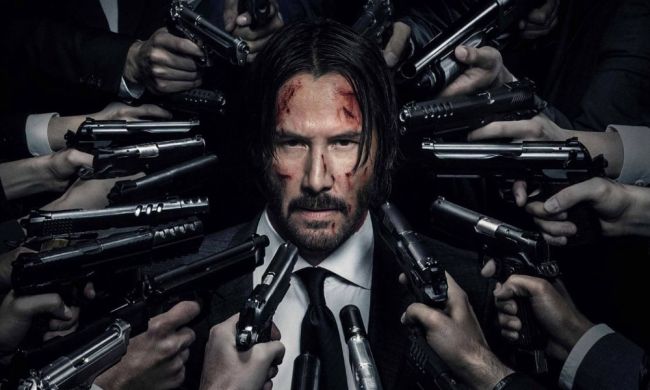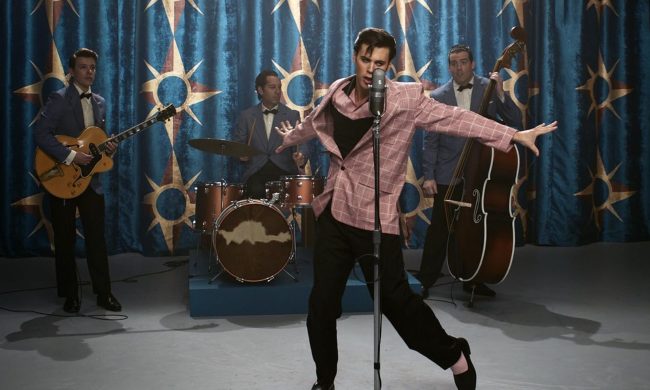Every so often, genre movies come along that outperform their premises in one way or another. Films like Snowpiercer or John Wick, for example, were pleasant surprises that exceeded expectations in their own ways and offered something more – something unexpectedly more compelling – than they initially appeared.
The Great Wall is not that kind of movie.
Directed by acclaimed House of Flying Daggers filmmaker Yimou Zhang, The Great Wall casts Jason Bourne star Matt Damon as a European mercenary whose attempt to locate a source of gunpowder in China during the Song dynasty is sidelined when he gets caught up in a war with savage creatures laying siege to the famous Great Wall. A joint production of U.S. and Chinese studios, the film is the first English-language production for Zhang and famously (or perhaps infamously, depending on the final box-office numbers) has the highest price tag of any movie ever filmed entirely in China.
The visual spectacle is all this movie has going for it.
And it’s fairly easy to see where its whopping $135 million budget was spent.
A lavish production with epic cinematography and impressively detailed sets, The Great Wall is a fantastic feast for the eyes, and takes a lot of visual cues from Zhang’s prior, celebrated films. The mix of bright, bold colors, balletic wire-work choreography, and grand set design – both outside the wall and within it – are a common ingredient in cinematic adventures set in ancient China, and each of these elements is present at exactly the sort of level you would expect from the most expensive movie ever made in the country.
Unfortunately, the visual spectacle is all this movie has going for it.
Damon’s loner-turned-hero mercenary is entirely unexciting and offers little reason for his casting in the role other than the name recognition he brings to the project. A generic protagonist who fights only for himself at first, but eventually finds something more important to fight for, Damon’s character follows an arc that – like so much of the film – holds few surprises and avoids much in the way of development.
Unfortunately, the same can be said of Tian Jing – the most prominent representative of the film’s predominantly Chinese cast – in the role of Commander Lin, the leader of a division of high-flying soldiers trained to dive from the top of the wall into hordes of creatures, then acrobatically twirl their way back to their perches like death-dealing yo-yos. Her performance offers little in the way of emotion or depth, and she often seems more comfortable engaging in complicated, aerial fight sequences than in scenes intended to develop her character’s back story or relationship with Damon’s mercenary.
It’s fairly easy to see where the whopping $135 million budget was spent.
Although supporting cast members Pedro Pascal, Willem Dafoe, and Andy Lau do a decent job of adding some colorful elements that push the boundaries of an otherwise cookie-cutter story, their contributions are too small and too few to affect the overall tone of the film, which goes all-in on style over substance, even with its talented cast.
And yet, The Great Wall still manages to be an entertaining – if not very deep – adventure that delivers on its fantastic, monster-fighting premise. It offers no more and no less than what the trailers promised, which will likely frustrate audiences hoping for an over-the-top “so bad it’s good” experience or a film that sees its premise through to extreme ends.
If anything, one of the greatest knock against The Great Wall might be that it takes the safest route possible through its intriguing concept – armies in ancient China using the Great Wall to fend off hordes of monsters – and plays it too straight. (Or as straight as a film with such a fantastic premise can play it.)

A visual treat with its bright palette, remarkably detailed sets, and mesmerizing choreography, The Great Wall is the sort of film that occasionally feels like a montage of beautiful sequences based on a cool concept rather than a fully formed, singular movie. By avoiding risks, the movie minimizes the likelihood of you leaving disappointed, but you likely won’t leave surprised or excited either.
The Great Wall is what it is, and although the story is inspired by one of the world’s great wonders, the movie never comes close to achieving that same lofty status.







